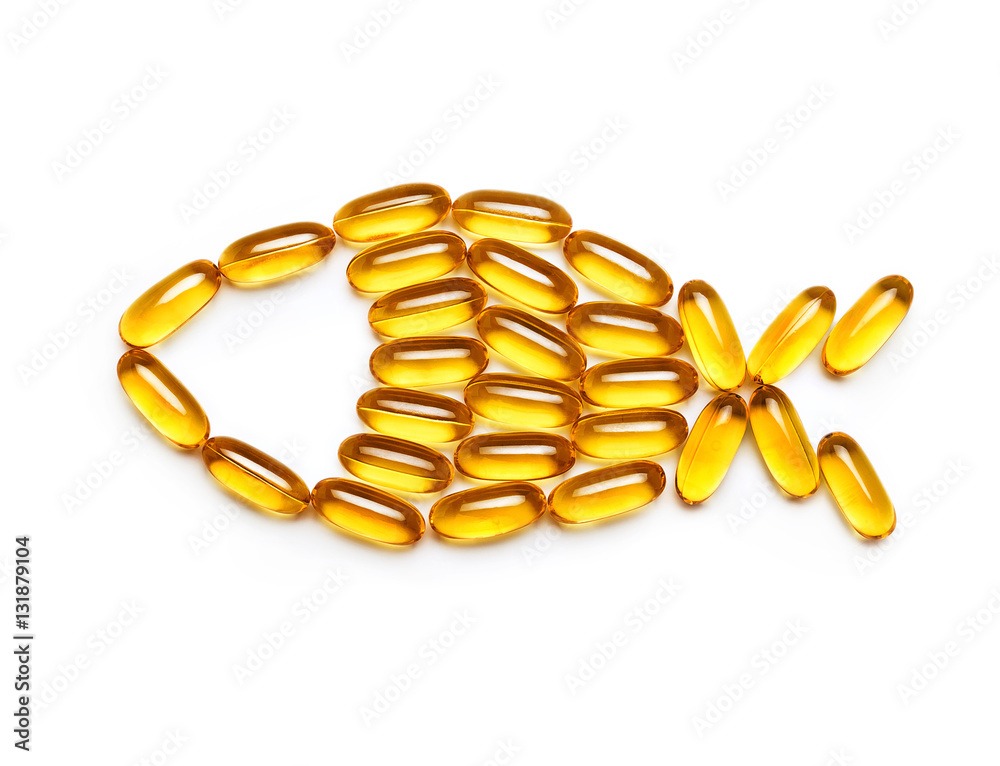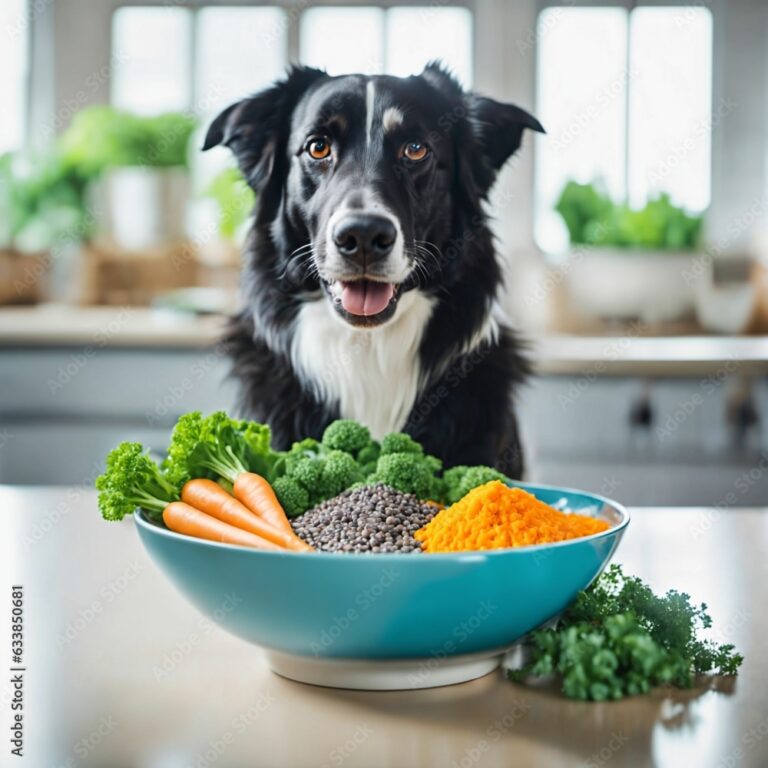Unlocking the Benefits of Omega-3 Fatty Acids for Your Pet
I might receive a small commission if you click on our links and make purchases. However, please keep in mind that this does not affect reviews, product comparisons, or recommendations. We try to keep things fair and balanced to help you choose your needs best. Clicking the link does not affect your total cost.
Introduction
Omega-3 fatty acids are essential nutrients that provide numerous health benefits for pets, much like they do for humans. Often found in fish oils, flaxseed, and other natural sources, Omega-3s play a crucial role in supporting a pet’s skin, coat, joints, and overall wellness. Including Omega-3s in your pet’s diet can lead to noticeable improvements in mobility, skin health, and even mental sharpness. In this guide, we’ll explore the key benefits of Omega-3s, the best sources, and how to safely incorporate them into your pet’s diet.
Understanding Omega-3 Fatty Acids and Their Importance
- What Are Omega-3 Fatty Acids? Omega-3 fatty acids are essential nutrients that include EPA, DHA, and ALA, which also play a part in human lives. They can be consumed through diet or supplements.
- Why Pets Need Omega-3s: Omega-3s are considered “essential” because pets’ bodies cannot produce them naturally, so they must be ingested through food. Without Omega-3s, pets may experience issues with skin, joint health, and even immune function.
- Omega-3s vs. Omega-6s: While Omega-6s are also important, pets often get an excess amount from typical pet food, leading to an imbalance. Omega-3s help counteract inflammation caused by high Omega-6 intake, providing a better overall balance.
- The Science Behind Omega-3s for Pets: Studies show that Omega-3s can reduce joint pain, improve skin health, and strengthen immunity in pets. These benefits make Omega-3s a beneficial addition to a well-rounded diet, especially for aging pets or those with health issues.
Health Benefits of Omega-3s for Your Pet
Skin and Coat Health
- Reduction of Inflammation: Omega-3s have anti-inflammatory properties, helping to soothe itchy, inflamed skin in pets with allergies or skin sensitivities. By reducing inflammation, Omega-3s contribute to a more comfortable and less irritated skin condition.
- Shinier Coat and Less Shedding: Regular Omega-3 intake promotes a glossy, healthy coat and minimizes shedding. This is especially beneficial for pet owners dealing with excessive fur loss around the home.
- Managing Skin Conditions: Omega-3s help manage skin issues like dermatitis, hot spots, and dry skin by strengthening the skin barrier and reducing the itchiness associated with these conditions. This can lead to fewer skin infections and a more comfortable pet.
Joint and Mobility Support
- Anti-Inflammatory Properties: Omega-3s help ease joint pain and stiffness in pets, especially those with arthritis or age-related joint issues. This natural anti-inflammatory effect makes movement easier and more comfortable.
- Improved Mobility for Senior Pets: Omega-3s help senior pets maintain flexibility and reduce discomfort during movement. Many pet owners see improved activity levels and a happier pet with consistent Omega-3 use.
- Complement to Joint Supplements: Omega-3s enhance the effects of joint supplements like glucosamine, creating a more comprehensive approach to joint health. Together, they work to reduce pain and increase mobility.
Brain and Cognitive Health
- Support for Brain Development in Puppies and Kittens: DHA, a type of Omega-3, is essential for brain and eye development in young pets, promoting healthy growth and learning abilities. This is especially important in the early stages of life for cognitive development.
- Maintaining Cognitive Function in Senior Pets: Omega-3s help protect against age-related cognitive decline, keeping senior pets mentally sharp. Regular intake has been shown to support memory and reduce symptoms of confusion.
- Mood and Behavioral Benefits: Omega-3s can support a balanced mood and may even reduce anxiety in some pets, contributing to a calmer and happier demeanor.
Heart Health and Immune Support
- Heart Health Benefits: Omega-3s promote cardiovascular health by lowering blood pressure, improving circulation, and reducing inflammation in blood vessels. This makes them valuable for heart health, especially in senior pets or breeds prone to heart disease.
- Enhanced Immune System Function: Omega-3s strengthen immune responses, helping pets fight infections and illnesses more effectively. A strong immune system is crucial for pets facing seasonal allergies or other health challenges.
- Managing Chronic Inflammatory Conditions: For pets with chronic inflammation, such as arthritis or inflammatory bowel disease, Omega-3s help manage symptoms by controlling inflammatory responses, which can reduce the need for medications.
Best Sources of Omega-3s for Pets
- Fish Oil Supplements: Fish oil is a popular source of Omega-3s, containing both EPA and DHA, which are especially beneficial for pets’ skin, joints, and brain health. Many pet owners prefer fish oil supplements due to their effectiveness and easy dosing.
- Krill Oil and Its Unique Benefits: Krill oil is a potent source of Omega-3s that is more readily absorbed than fish oil, allowing for faster benefits. It also contains the antioxidant astaxanthin, which can further support immune and skin health.
- Flaxseed Oil for Plant-Based Omega-3s: Flaxseed oil provides ALA, a plant-based Omega-3, making it a good choice for pets with fish allergies or dietary restrictions. However, pets need to convert ALA to EPA and DHA, which may reduce its effectiveness.
- Chia Seeds and Algal Oil: These alternative sources provide Omega-3s in a plant-based form, ideal for vegetarian pet diets. Algal oil is a rich DHA source and an excellent option for pets sensitive to fish products.
How to Incorporate Omega-3s into Your Pet’s Diet
- Choosing the Right Supplement: Look for high-quality, third party-tested supplements to ensure purity and potency, avoiding options with additives or contaminants. Reliable brands prioritize safety and transparency, providing peace of mind.
- Dosage Guidelines Based on Pet Size: Proper dosage is important, as too much Omega-3 can lead to digestive upset. Follow recommended dosages based on your pet’s size and consider starting small to gauge tolerance.
- Omega-3 Supplementation vs. Natural Sources: Omega-3 supplements offer a controlled dosage, while natural sources like fish or flaxseed are easy to incorporate into meals. Both options have benefits, but supplements may offer more consistency for therapeutic use.
- When to Consult a veterinarian: Consult your vet before adding Omega-3s to your pet’s diet, especially if your pet has health conditions or takes other medications. Veterinarians can provide personalized dosage and product recommendations.
Frequently Asked Questions About Omega-3s for Pets
Are Omega-3s Safe for All Pets?
- Omega-3s are generally safe for most pets, but certain conditions or sensitivities may require caution. Consulting a vet is recommended to ensure the Omega-3 source and dosage your pet needs.
Can Omega-3s Help with Allergies?
- Yes, Omega-3s reduce allergic reactions by controlling inflammation and supporting skin health. Pets with seasonal allergies or skin sensitivities often experience fewer symptoms with Omega-3 supplementation.
How Long Does It Take to See Results?
- Results typically appear within a few weeks, with improvements in coat quality and reduced itching often seen first. For joint health or cognitive benefits, consistent use over several months may be necessary to notice full effects.
What Are the Side Effects of Omega-3 Supplements?
- Common side effects can include mild digestive upset, such as loose stools, especially if given in high doses. Reducing the dosage or choosing a lower-concentration supplement can help alleviate these issues.
Can Pets Get Omega-3s from Food Alone?
- Some pet foods contain Omega-3s, but the amounts may not be sufficient for therapeutic benefits. Supplementation is often recommended for pets needing extra support to receive an effective dose.
Conclusion
Omega-3 fatty acids are a powerful addition to your pet’s diet, supporting everything from joint health and mobility to skin quality and cognitive function. Whether you choose fish oil, krill oil, or plant-based sources, adding Omega-3s can lead to noticeable improvements in your pet’s overall health. For safe and effective use, consult your veterinarian, especially if your pet has specific dietary needs. With the right Omega-3 support, your pet can enjoy a healthier, more active life!








